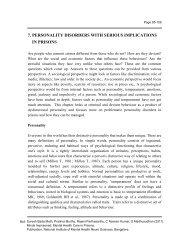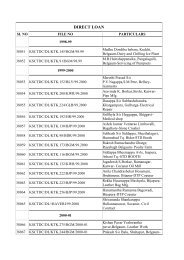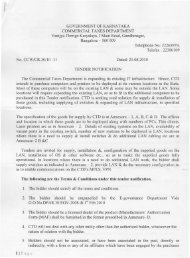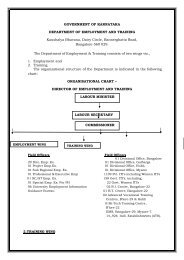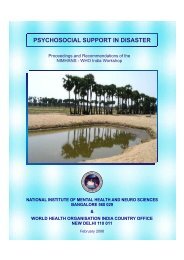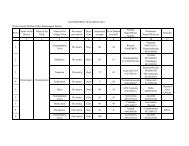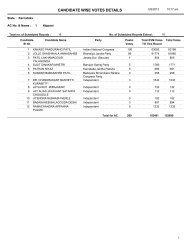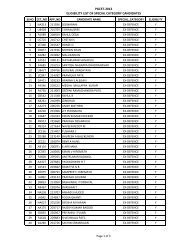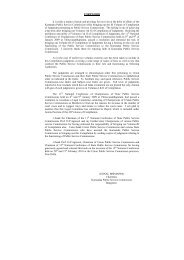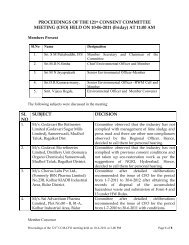Tsunami Disaster - Psychosocial Care for Children [PDF] - Nimhans
Tsunami Disaster - Psychosocial Care for Children [PDF] - Nimhans
Tsunami Disaster - Psychosocial Care for Children [PDF] - Nimhans
Create successful ePaper yourself
Turn your PDF publications into a flip-book with our unique Google optimized e-Paper software.
Infants„ No comprehension but sense something has happened„ Recognize that people around him/her are unhappy, sad or worried and hence becomeafraid„ May change eating, sleeping and toilet habitsPre-school„ Death brings confusion and guilt. Views illness and death as a punishment <strong>for</strong> somewrong doing„ May see death as something that is reversible„ Recognizes people around him/her are unhappy, sad, worried or frightened and in turnbecomes frightenedFamily is centre of his/her world and is confident that the family will take care ofthe needsSchool age children have the ability to understand what the tsunami has done to the peopleand the environment around them. This makes them sad about the family members being killed inthe tsunami and worried about near and dear ones who are injured. School age children have aneed to understand what has happened and the concrete steps that they can take to prepare andprotect themselves from any such happenings in future. <strong>Children</strong> at this age are very attached toparents, siblings, friends and their pets. Thus a loss of any of the a<strong>for</strong>ementioned people causes agreat amount of distress to children and they find it difficult to cope.Often children are unable to identify the emotions that they are experiencing. To allappearances they may seem to be all right but there might be lot of turmoil and conflicts withinthem that requires to be ventilated. They may want to talk about the details of the event over andover again.5–9 Years„ Often feels responsible <strong>for</strong> the events and the loss„ Begins to realize that death is final but believes it will never happen to him/her or anyoneknown„ Tends to personify death„ May associate death with a skeleton or have nightmares.„ Unavailability of other family members to help cope is worrying„ May think about it as magical illusion or punishment„ Develops an interest in the causes of death (violence, old age, sickness)„ Has to cope with social reactions like people at school or others aroundTOT INFORMATION MANUAL - 1 9


![Tsunami Disaster - Psychosocial Care for Children [PDF] - Nimhans](https://img.yumpu.com/43739531/9/500x640/tsunami-disaster-psychosocial-care-for-children-pdf-nimhans.jpg)
